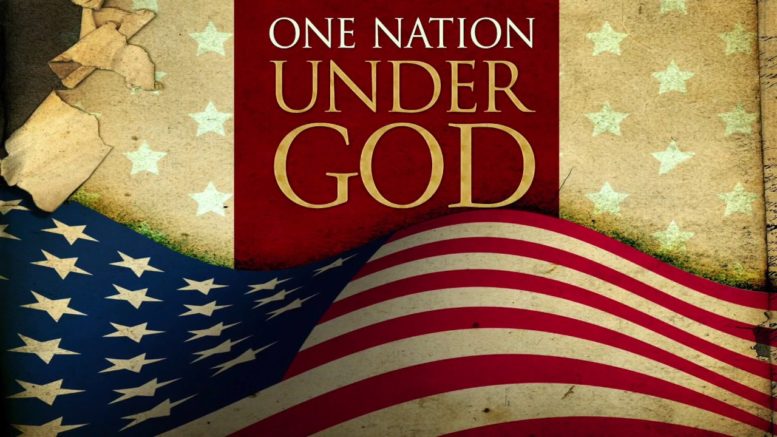As mentioned last time, God designated two spheres of power where man exercises dominion, and therefore stewardship. They are religion and governance. We previously focused on today’s governance corruption and failure. But seldom is only one sphere corrupted. Today’s article turns to the church. Not attacking it, but examining where we are versus where we should be. Understanding where correction is needed—and how to go about it.
Does this matter? Yes. We live in the age of the church, the time between Christ’s resurrection and second coming. Man is free from Satan’s deception, unless man chooses otherwise. (Rev. 20:2-3) The church’s purpose is teaching what it means to be God’s people, discerning good from evil. The morality derived from those principles provides society’s proper foundation. Self-governance cannot occur without this morality. Both spheres duty is serving the people by supporting the common good, and in turn serving God. Christ’s Church is its people; not the buildings, institutions, or hierarchies created by man.
History provides some useful lessons about today—if we choose to learn from them.
Some History Lessons
These brief examples come from Jerusalem, the Middle Ages, and Renaissance. At the risk of receiving a speeding ticket, we’ll cover about two thousand years of history in less than eight hundred words—so buckle up.
Jerusalem
Israel’s chief priests plotted to do away with Christ. They saw Him as a threat rather than messiah. After Christ’s arrest, Pilate presented Jesus to the crowd. They responded shouting Pilate was no friend of Caesar’s if Christ was released. Pilate asked, “Shall I crucify your king?” The chief priests responded, “We have no king but Caesar.” (John 19:5-15)
At that moment these priests openly rejected God as their king. Less than forty years later, the Roman army burned Jerusalem and destroyed the temple. The lesson is clear. Stand in the way of God’s plan, and you will be removed. If this can happen to His beloved Jerusalem, are we arrogant enough to believe it cannot happen here now?
The Middle Ages
The Middle Ages begin after Rome’s fall in the fifth century, with the Germanic tribes and Huns invasion. The Germanic tribes generally elected their leaders and people elected their bishops. Leaders came from the people, were elected by the people, and served the people.[1]
These conditions did not last long. The German chiefs were relatively weak; they needed the people’s support to rule. Bishops provided the chiefs a local connection. Additionally, the church spoke a common language (Latin), provided education, and possessed important historical records. The chiefs increasingly relied on the bishops. So much so they became known as the ‘king’s man.’ The bishops and chiefs became too important to allow the people to elect.
The pope and local rulers fought over who should appoint bishops. This battle lasted for centuries, reaching a peak in 800 when Pope Leo III crowned Charlemagne Holy Roman Emperor in Rome at St. Peter’s basilica. Both asserted they held power over the other. There is a clear lesson here as well. When either sphere turns from God’s purpose, it becomes corrupt.
Correcting the Balance
The story’s not good so far. What changed? We must go to the 1200’s and pope Innocent III. He continued the battle above, and asserted religious power’s superiority over political power. He believed all power derives from the spiritual, and as God’s spiritual leader the pope held power over the rulers. Innocent had the intellect and authority to enforce his view, and shrewdly did so.
At this time, England had a terrible king. King John. Innocent appointed a fellow Paris student and friend as Archbishop of Canterbury—Stephen Langton. Langton believed both religious and political power existed to serve its. Under his leadership, Magna Charta was written and signed in 1215. He defied both pope and king. But Langton didn’t do it alone. He brought enough barons and bishops together forcing King John to sign it, and live by its conditions.
A couple critical lessons here. First, power rests in the people. Our duty supporting the common good requires replacing corrupt leaders. Corruption turns people away from God, and therefore must be removed. King John repeatedly tried violating Magna Charta. He died from dysentery fighting his barons. A second lesson is corrupt leaders seldom change. Another reason they must be replaced. America’s founding leveraged both lessons. Many came to America fleeing religious persecution and corrupt political leadership. Today there is no longer any place to run.
The Renaissance
The Renaissance began around 1350. While things changed in England, much of Europe was not as lucky. Placing religious power over political corrupted both. Corruption reaching a high point under the Borgia and Medici popes between 1455 and 1565. Luther penned his theses in 1517 in response to this corruption. Henry VIII used it to break away from Rome’s control and increase his own power. The latter act marked a return to ideas underlying Roman pagan rule.
The Islamic scholar Averroes also greatly influenced Christian scholars beginning in the 1200’s. He was heavily influenced by Aristotle’s ideas. The scholars interest led to translating Aristotle’s complete works—first from Arabic and later Greek manuscripts. Plato’s complete works would not be translated for another hundred years. Christianity’s early fathers often used Plato’s writings instead. They viewed Plato’s ideas as being closer to Christianity, but still pagan.
Aristotle believed in governing power’s superiority. Man created his own gods. Intellectuals like Machiavelli, Hobbes, Spinoza, Locke, and Rousseau all replaced one corruption with another. They each put religion under governance in different ways. Their train of thought forms communism’s, fascism’s, humanism’s, Marxism’s, modern liberalism’s, progressivism’s, and socialism’s basis. Those ideas also entered the church through liberation theology. The lesson here is also clear. Man needs something greater than himself for guidance, guidance coming from God alone. This marks the basis for knowing versus believing—fact versus opinion.
Today’s Events
Hope that wasn’t too painful. At its heart, the Renaissance attempted returning to pagan rule like the Roman Empire’s. Without God man fails to become good because man’s nature doesn’t change.
Coronavirus Update
Previous articles pretty thoroughly covered governance corruption relating to the recent outbreak—at least for what is known so far. I won’t repeat that here. What I’ll add is over this past week evidence is emerging showing how much this pandemic was overblown by officials, the medical community, and media. As predicted, coronavirus deaths appear to be over-reported. Colorado lowered its virus death toll by over 300 (almost 30%). Other states should follow suit.
Additionally, 80% of the CDC’s current 68,998 deaths were 65 or older.[2] So why did we lock down our entire society through stay at home orders when those most at risk were not even in the work force? Virginia’s governor, and others, have much to answer for. The probable answer lies in using the opportunity to increase their power as they are turned away from God.
But our government leaders are not alone. Many churches and communities reacted in fear. Worship services were not held as usual, unlike during the last administration’s swine flu pandemic. Some were arrested when they tried to gather in worship, even when complying with social distancing guidelines. This at a time when we should renew our focus toward God.
Religious Corruption
Yes, it’s true we are to obey governing authority. But all authority comes from God (Rom. 13:1-3), and rulers are to be God’s servants (Rom. 13:4-10). When governing power turns away from God, we are left with choosing between man and God. When that occurs we are to follow God (Acts 5:29). Virginia’s governor supports abortion, same sex marriage, gender nullification, and infanticide. He is not one who follows God.
But it doesn’t end there. We see it in the abuse and corruption within the Catholic Church enabled by its hierarchy. Corruption involving sex, power, and money. Pope Francis receives support from the left and shares its views on issues like climate change, immigration, and globalism. The Vatican is confusing our Christian faith with the religion of humanity.[3] The first is true, and the second false. But it’s not just within the Catholic Church. We see corrupt cultural values being promoted within the Episcopal, Presbyterian, Anglican, and Methodist churches. Denominations whose hierarchies are choosing to follow man rather than God.
Even Southern Baptists are not immune. Their last convention affirmed using critical race theory as an ‘analytical tool.’ I must ask, “What has Athens to do with Jerusalem?” Critical race theory comes from pagan ideas peddled by racists as big as those they say their theory identifies. How do I know? Their fruit is division, jealousy, and hate. These come from Satan, not God. You cannot reconcile Aristotle and the Bible. Their ideas are contradictory and incompatible. We must stand and proclaim what we know to be true, relying on God and the Holy Spirit to give us what we need.
Implications
I’ll close with just two implications. There are more, but these suffice for now. First, there is no such thing as partial power. Either power can change nothing or it can change everything. Our Constitution says Congress shall make no law concerning religion, and many states contain similar provisions. However, if government tells you when, or how, you can meet—they have power. When they tell you when and how you can begin to meet again—they have power. You’ve lost, and the only way to get it back is to reassert your claim given to you by God. You must become like Stephen Langton.
Second, our principles bind us together. But to use them we must know them, and then go do them—we must act. We are each at different points in our faith walk, and each has different skills, abilities and aptitudes. The way we apply those principles, just as how we apply God’s laws, changes based on where we are at. A common end using our unique gifts to get there. But whatever our actions, they must be without fear in obedience to God.
The age of the church will end. God knows when this will occur, but our decisions determine the time. We are not victims, as promoted by critical race theory and other crackpot notions. Nor are alone or without hope. We are God’s children and need to live like it. Then demand those we select as leaders do the same—or replace them with someone who will. Leaders have a special duty to serve, whether in religion or governance. The choice is ours; we are in a war of ideas. Warriors of all types are needed. Are you willing to follow Him?
Footnotes:
[1] Wolf, Dan, The Light & the Rod, Vol. 2, Biblical Governance Corruptions, Living Rightly Publications, forthcoming.
[2] Center for Disease Control, Provisional COVID-19 Death Counts by Sex, Age, and State, May 20, 2020. https://data.cdc.gov/NCHS/Provisional-COVID-19-Death-Counts-by-Sex-Age-and-S/9bhg-hcku, accessed May, 2020.
[3] Just a few recent examples from various programming sources. All accessed May, 2020.
https://www.youtube.com/watch?v=Aw4j5sAT1A8
https://www.churchmilitant.com/news/article/wayward-shepherd





